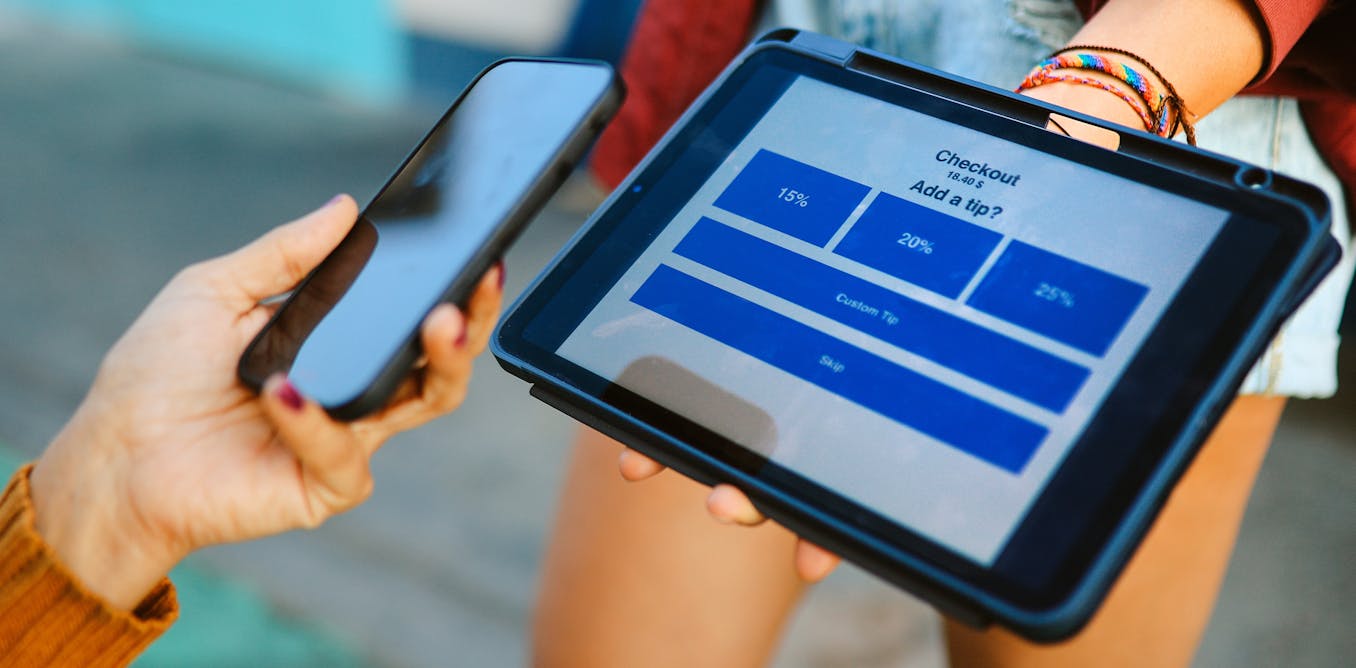As digital tipping systems become more prevalent in places like cafés and restaurants, customers often find themselves feeling uneasy under the watchful gaze of employees. This shift in how tipping works, where choices are made on visible screens or handheld devices, is altering the traditional tipping experience, making many feel scrutinized.
In an effort to understand this phenomenon, marketing and business researchers conducted a comprehensive study. They examined 36,000 transactions and ran controlled experiments involving over 1,100 participants to explore customer reactions to what they term “tip surveillance.” Their study compared environments with varying levels of tipping privacy, from open displays facing customers to discreet options where tips are shown post-service.
The findings are significant: excessive visibility during the tipping process negatively impacts customer loyalty. Feeling observed leads to a decrease in repeat visits and recommendations, whereas privacy allows customers to feel more generous and maintain control over their decisions without pressure.
This contrasts with behaviors in other areas, such as charitable donations, where people often enjoy being watched. The difference lies in the perception of tipping as obligatory rather than voluntary, which transforms the experience into one of pressure rather than generosity.
The Age of Digital Tipping and “Tipflation”
While digital tipping offers convenience, it also introduces issues like “tipflation,” where tipping expectations seem to exceed reasonable norms. Companies looking to retain customers should consider creating conditions that allow for tipping privacy, which the research suggests fosters customer satisfaction and loyalty.
Some employees might believe that observing customers during the tipping process encourages higher tips, but the research did not find a clear correlation between privacy and tip amounts. Instead, privacy can lead to more generous feelings among customers, resulting in similar tipping levels regardless of the surveillance level.
For businesses, balancing customer freedom with encouraging generosity is vital. Training employees to respect tipping privacy and ensuring fair employee compensation without relying on customer pressure could enhance a company’s reputation and customer base loyalty.
Future Directions for Tipping Practices
Tipping, ideally a rewarding experience that boosts generosity and social standing, can also be fraught with anxiety. As digital technology reshapes tipping norms, customers are tipping more frequently, across more services and locations, than ever before.
In the ongoing debate among businesses, customers, and policymakers on integrating digital tipping, the research highlights a need for a comprehensive approach. The goal should not only be to increase employee tips but also to ensure a positive customer experience.
Ultimately, as society considers how to maintain a fair tipping system, the focus should be on protecting workers’ rights, ensuring fair pay, and allowing customers and business owners to reward exceptional service effectively.





